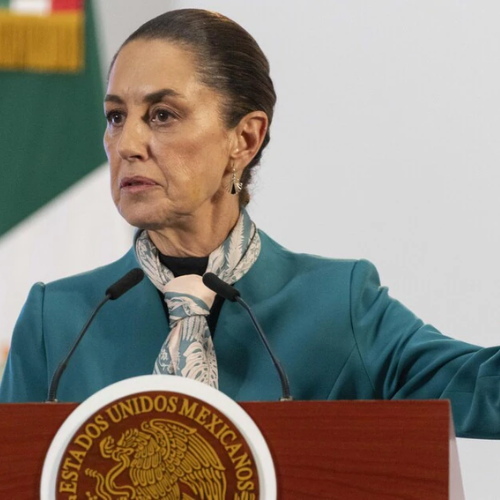Mexico’s President, Claudia Sheinbaum, has introduced a bold new plan to reduce the country’s reliance on Chinese products. This move comes as the country faces increasing pressure from the United States, particularly from the new President-elect, to limit the amount of Chinese goods entering the market. The country has been dealing with a large trade deficit with China, which reached $105 billion in 2023. This initiative is part of a broader effort to strengthen Mexico’s economy and reduce its dependence on Chinese imports.
Reducing Mexico’s Dependence on China
One of the key aspects of Sheinbaum’s plan is to boost the country’s domestic production. By encouraging local businesses to produce more goods, the Mexican government hopes to reduce the need to import items from China. The plan focuses on industries like textiles and automobiles, which rely heavily on Chinese imports. For example, Mexico plans to replace 15% of the sewing thread it imports with products made within the country.
Sheinbaum is also aiming to provide incentives for local manufacturers of products like polymers and automotive cables. These industries are vital to Mexico’s economy, and by encouraging local production, the country hopes to strengthen its manufacturing sector. The president’s goal is to create a more self-sufficient economy that isn’t as dependent on foreign imports, particularly from China.
New Tariffs on Chinese Goods
As part of this new strategy, Mexico has introduced higher tariffs on several products from China. Tariffs are taxes that a government places on imported goods to make them more expensive. In this case, Mexico’s new tariffs on Chinese products will range from 15% to 30%. The targeted products include textiles, such as clothing and shoes, as well as toys. This move is in line with the protectionist approach that the U.S. has taken in its own trade policies, particularly under the leadership of the new U.S. President-elect.
The idea behind the new tariffs is to make Chinese products more expensive and less attractive to consumers in Mexico. By making locally produced goods more competitive, the government hopes to encourage people to buy Mexican-made products instead of imported ones. This is also an effort to reduce Mexico’s trade deficit with China and to bring more manufacturing jobs to the country.
A Political Gesture to the United States
The timing of Sheinbaum’s economic plan is also tied to the political pressures from the United States. Mexico has long been accused of allowing Chinese goods to enter the U.S. market through the country’s ports, bypassing U.S. tariffs on Chinese products. The United States has expressed concern that this practice undermines its efforts to protect its own economy from Chinese competition.
To avoid further trade tensions, Sheinbaum’s government has decided to take action that aligns more closely with the U.S. stance against China. By imposing tariffs on Chinese goods and pushing for local production, Mexico is signaling to the U.S. that it is willing to cooperate in the ongoing trade dispute with China. This is a clear attempt to strengthen trade relations with the U.S. and avoid potential tariffs on Mexican products entering the U.S.
At the same time, Mexico is working to protect its own economic interests. Sheinbaum’s government is focused on creating new jobs in the manufacturing sector, which will help boost Mexico’s economy. The ultimate goal is to make Mexico one of the top 10 economies in the world by 2030. To achieve this, the country needs to reduce its trade deficit and build stronger, more competitive industries that can thrive in a global economy.
These actions reflect a growing tension in North America’s relationship with China. Both Mexico and the U.S. are looking to strengthen their economies by reducing their reliance on Chinese imports, but they are also balancing these actions with the need to maintain trade relations with China. By aligning with U.S. trade policies, Mexico hopes to avoid further trade disputes and strengthen its position in the global marketplace.

